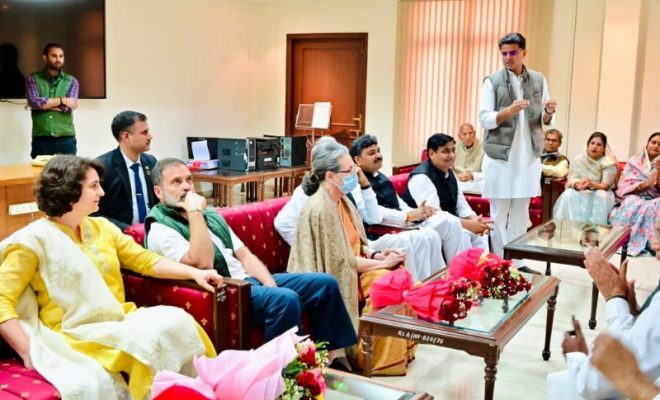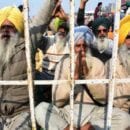4 Congress MPs to enter Rajya Sabha race

The Congress party’s choice to name 4 members, including former president Sonia Gandhi as a contender for the Rajya Sabha polls marks a critical move in Indian legislative issues. With her renowned lifetime spreading over five terms as a Lok Sabha member, Sonia Gandhi’s entrance into the Upper House is expected to bring her abundance of involvement and initiative to another regulative field. The declaration of her bid, followed by the assignment of four different competitors, highlights the party’s essential way to deal with the forthcoming polls.
Congress’ Competition Setup
Along with Sonia Gandhi, the Indian National Congress (INC) has selected Abhishek Singhvi from Himachal Pradesh, Akhilesh Prasad Singh from Bihar, and Chandrakant Handore from Maharashtra for contesting the Rajya Sabha elections.
Each and every member addresses a determined decision pointed towards boosting the party’s discretionary possibilities in their separate states. Abhishek Singhvi’s expected victory in Himachal Pradesh is supported by serious areas of strength for Congress in the state, while Chandrakant Handore’s bid in Maharashtra might confront difficulties in the midst of political elements following Ashok Chavan’s resignation from the party.
Expected Electoral Dynamics
The political landscape is likely to be significantly altered by the upcoming biennial elections for 56 Rajya Sabha seats.
While Abhishek Singhvi’s success in Himachal Pradesh appears to be encouraging given Congress’ traction in the state, Chandrakant Handore’s bid in Maharashtra might experience obstacles assuming more Congress individuals take cues from Ashok Chavan and imperfections to the BJP.
In spite of possible difficulties, the Indian National Congress (INC) is ready to get 11 seats in the impending decisions, mirroring its perseverance through impact and vital situation in Indian governmental issues.
Territorial Contemplations and Future Inclinations
The entrance of 4 Congress MPs in Rajya Sabha race displays the essential contemplations of state Congress units and highlights their persevering through allure and importance inside the party. In addition, the decision to nominate them demonstrates the importance of regional representation and electoral viability for the Congress.
The inclination for a competitor from North India, as shown by a nearby helper, lines up with Sonia Gandhi’s long standing relationship with the locale and her obligation to serve the interests of its kin.
On the other hand, key Congress pioneers addressing South India, including Mallikarjun Kharge, Rahul Gandhi, KC Venugopal, and Jairam Ramesh, keep on assuming vital parts in molding the party’s plan and vision for the nation’s future.
Generally, Sonia Gandhi’s application and the more extensive determination of applicants mirror the Congress Party’s essential analytics and its continuous endeavors to explore the perplexing elements of Indian legislative issues.



